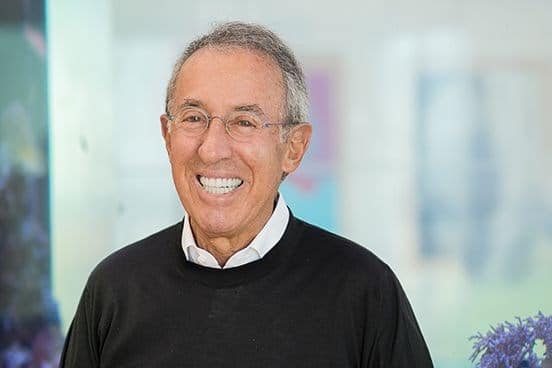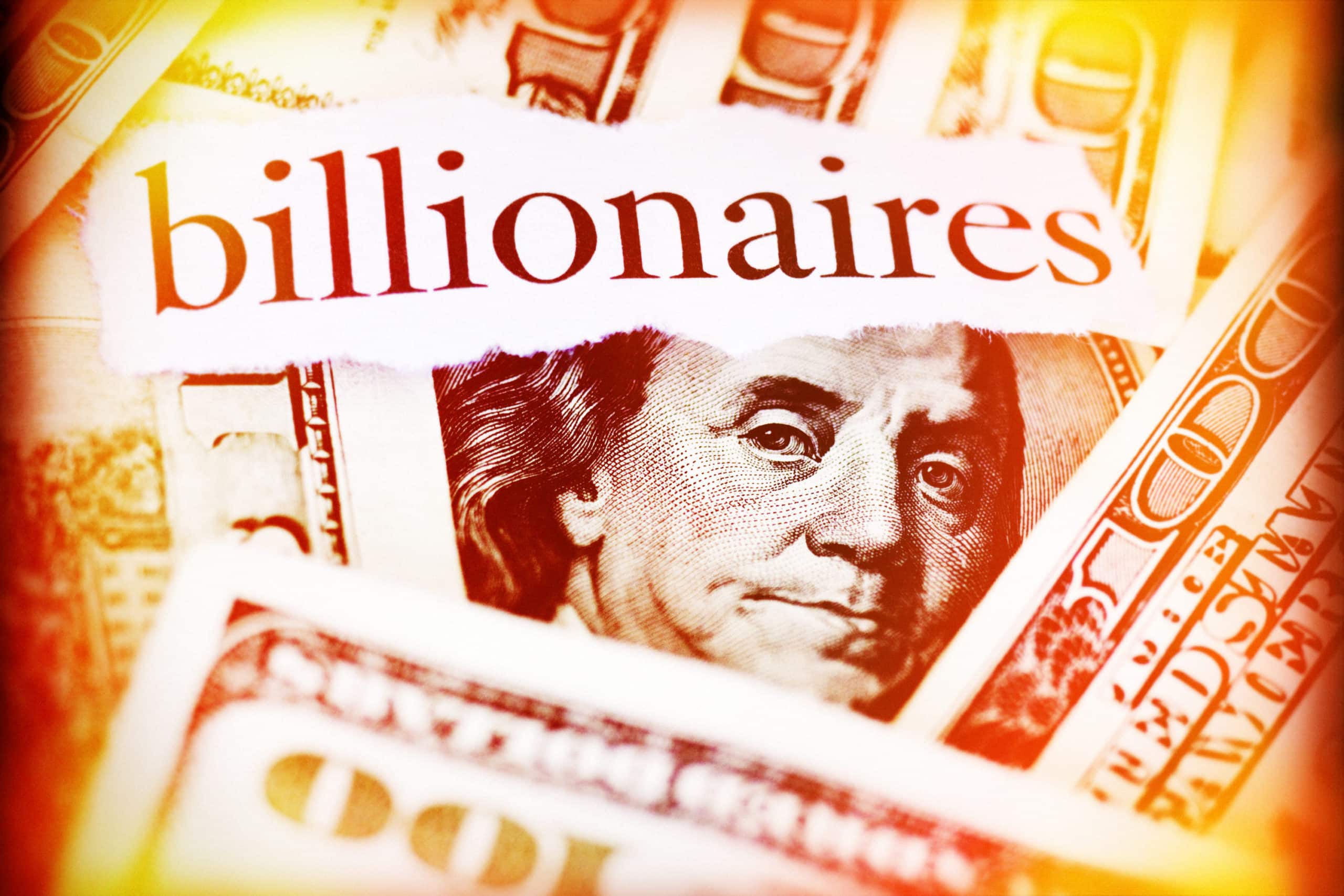Billionaire money manager Ron Baron has overseen decades of stellar returns, in large part because he is an optimist. He has remained steadfastly bullish in his approach to long-term investing in stocks, which have risen greatly since he started his fund 40 years ago. The mutual fund manager he started with $10 million under management in 1982, Baron Capital, now oversees roughly $50 billion in some 19 funds. Baron has amassed a net worth of nearly $5 billion thanks to his strong track record and long-term asset appreciation. Baron is also famous among Wall Street fund managers for his annual investment conference, which has featured entertainment from dozens of stars, including Jerry Seinfeld, Bon Jovi, Chris Rock and Mariah Carey.
Despite this year’s market turmoil, Baron remains undeterred, with the buy-and-hold investor still predicting massive returns on some of his biggest bets. A longtime Teslabull, he has a staggering 45% of one of his largest funds invested in the electric vehicle maker’s stock, even after shares have struggled this year, down nearly 44%. While Baron’s investment in Tesla has reaped huge profits over the years, 2022 has proved more difficult amid the broader market selloff. The flagship $6 billion (assets) Baron Growth Fund is down roughly 26% in 2022, while the Baron Partners Fund, also with $6 billion under management, is down 28% (compared to the S&P 500’s 21% decline). Still, the Baron Partners Fund boasts an annual average return of 28% and 22% over the last five and ten years, respectively.

FORBES: How did you get your start in investing?
RON BARON: I went to law school at night in Washington, D.C., and worked in the patent office during the daytime as a patent examiner. And I had all these other jobs—from bartender to cabana boy—to make extra money. When I was 26, I couldn’t be drafted anymore, so I resigned from the patent office and came to New York. I was $15,000 in debt, with just $500 in cash, living in my friend’s basement in New Jersey and applying for a job as an analyst on Wall Street. I couldn’t get a job—I was even applying for jobs as chauffeurs for people who worked on Wall Street. I figured, if I work for them, I can impress them, then maybe I can talk them into a job, but nothing. After around three months, I talked my way into a job working as a research analyst for Janney Montgomery Scott. I would go visit companies every week and then send out a research letter to salesmen who would pitch them to clients. After a bad stock recommendation, I got fired and started looking for a second job. I called up Alan Abelson, the editor of Barron’s, and told him my story. I went to talk to him, and he offered me a job as a reporter, but I said, “Thanks very much, but I’ve always wanted to be an investor.” He ended up recommending me for my next job, which was also in research. I then partnered with a friend from law school doing research that we sold to hedge funds for commissions. By that time, my net worth had gone from –$15,000 to $2 million. So in 1982, I started Baron Capital with $10 million in assets under management.
FORBES: How would you describe your investment strategy today and has it evolved over your career?
BARON: When I first got started, it was about what a business was worth. It was based on what I thought a business was worth and then buying it at a discount to that. I bought a bunch of stocks like that—most of them worked out fine, but the ones that didn’t were just terrible investments and I couldn’t get out of them. So I said, that doesn’t sound like a very good idea. What turned out to be a better idea was investing in great businesses with growth potential, great people running them and a competitive advantage. I focused on sales growth as opposed to earnings per share growth. It is always about learning how businesses make money. I thought that was a big advantage that I had from my own experience, because I saw how they worked and what made them successful or not. I also learned about Warren Buffett and how he invested, so I tried to do that. He’s more of a value investor, though, whereas I’m much more growth oriented.
FORBES: Which investment do you consider to be your greatest triumph?
BARON: It would be Tesla (TSLA)—that’s the one we’ve made the most from and the one I still think we’re going to make the most from in the future. One of my friends from law school and the patent office called me up about investing in Antonio Gracias’ partnership, who it turns out became friendly with Elon Musk and then became the lead director of Tesla in 2007. He eventually introduced me to Musk, who came to visit me wearing baggy cargo pants and a plaid shirt, looking generally disheveled. He tells me his story about how he’s going to create this electric car to compete against legacy automakers and oil companies. After the stock went public in 2010 at around $20 per share, I couldn’t sell it fast enough, but continued to watch it. That was around when the company introduced the Model S, which sent the stock to $80 per share. So I went out to visit Musk at his factory, where we spent several hours talking about space and cars. Shortly after, the stock doubled again, and I said to myself, “I have to own it.” So we invested $380 between 2014 and 2016, which has generated billions of dollars in gains for our clients over the years. I think we’re going to be getting a five, six or seven times return on our investment again in the next ten years. Now we’ve also been heavily investing in SpaceX.
FORBES: Which investment do you consider your biggest disappointment and what did you learn from it?
BARON: Well, the biggest dollar loss was Sotheby’s. I invested $500 million in 1999 thinking they could take auctions online, and the stock had initially doubled in price. But then the chairman got indicted and the stock fell to half the original price I invested at, so I sold it. We had also owned nonvoting stock, which taught me a valuable lesson about avoiding that in the future. The huge mistake I made was that I wasted my time and didn’t focus on AmazonAMZN -1.4% in 1999, when I would go visit Jeff Bezos to unsuccessfully persuade him to buy Sotheby’s. It taught me that whenever I meet someone like that again I will know it and not fail to invest with them. Investing in great people—that’s what happened with Musk after the second time I met him.
FORBES: If you could give your 20-year-old self advice about investing, what would it be?
BARON: You have to love what you do, really work hard and guard your reputation above everything else. By that, I mean the way you act when nobody sees what you’re doing. You have to ask yourself, would I be proud? One of the people who helped me early in my career was Jay Pritzker, who told me once, “Ron, if you need to have an agreement in writing, you’re doing business with the wrong person.” You have to live and die by your word. Whatever you say you’re going to do, you do. That was a really big lesson, living up to your word and being a handshake person.
FORBES: What is the biggest risk investors face, either from a broad strategy standpoint or from a current investment environment standpoint?
BARON: The biggest risk for investors right now is that they think because they’re smart, they can predict politics, the stock market or oil prices, for example. They think all they have to do is buy or sell stock to be successful, but that’s not true. When people are investing, they shouldn’t think they are going to make money on investments immediately. They should have some reasonable time frame. If they are investing today to make money tomorrow, next month, or even next year—that’s risky. In order to invest successfully you have to have a long time horizon and be prepared to invest in a business, as opposed to investing in stocks. I believe there is an expertise to investing in businesses just like there is in cutting hair or flying a plane.
FORBES: What are some books that you recommend every investor read?
BARON: Power Play: Tesla, Elon Musk and the Bet of the Century by Tim Higgins and Titan: The Life of John D. Rockefeller Sr. by Ron Chernow. I’m currently reading Leonardo da Vinci by Walter Isaacson.
FORBES: Thank you.
The conversation has been edited and condensed for clarity.
By Sergei Klebnikov, Forbes Staff
